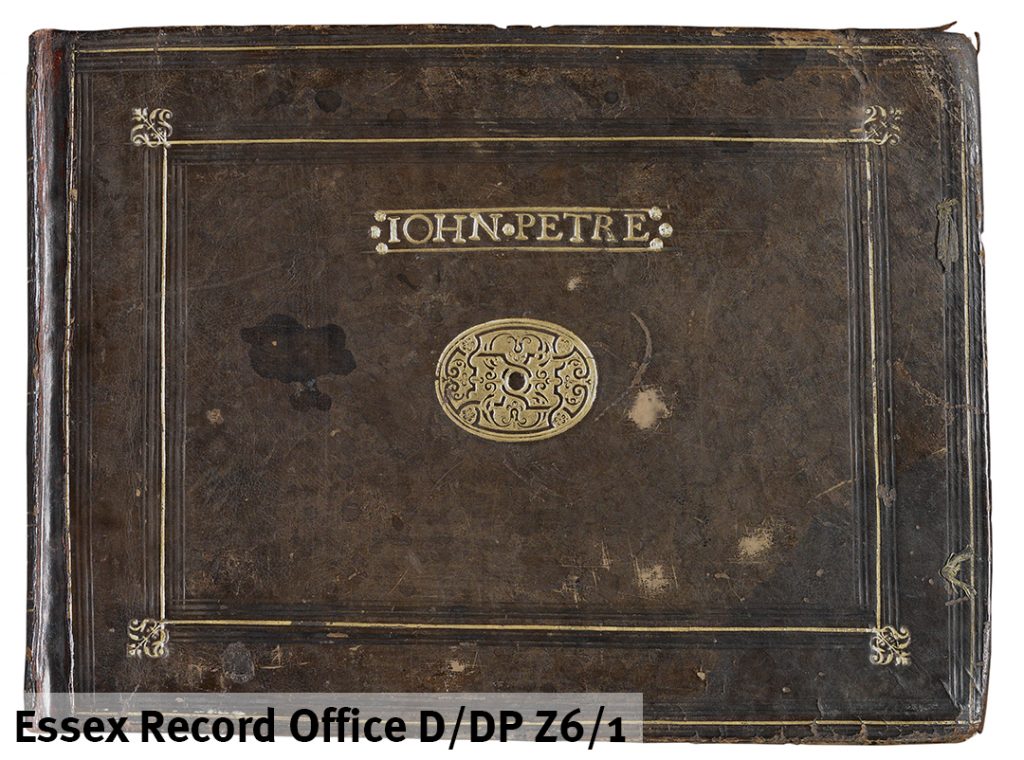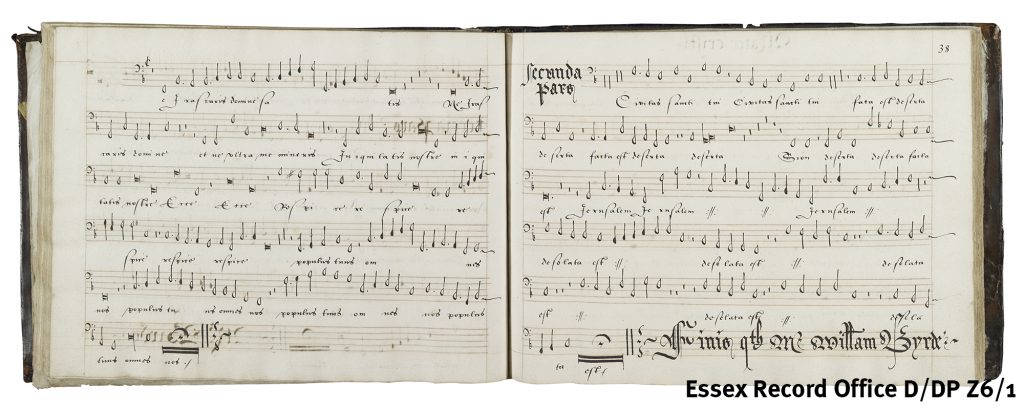July 2023 marks the 400th anniversary of the death of the composer William Byrd, who for over 25 years lived in Stondon Massey.
Byrd was a recusant Catholic who refused to attend the services of the Church of England. While living at Stondon Massey, Byrd composed two books of illegal Latin religious music known as the ‘Gradualia’. The first set of 1605 was dedicated to the Earl of Northampton, and the second set dated 1607 was dedicated to Byrd’s great friend and patron, Lord Petre of Writtle who lived nearby at Ingatestone Hall.
According to a household inventory dated 1608, the Petre family possessed “2 sets of Mr Byrd’s books intituled Gradualia, the first and second set”, as well as other books containing “songs” by the composer (Edwards, A C. John Petre (1975), p.138). All the pieces were probably tried out at Ingatestone Hall before publication.
At the ERO we are fortunate to have two books from the household of John, 1st Baron Petre (1549-1614) that feature music written by Byrd. Dating from around 1590, these are known as part books, as they only show one part of the composition – in this case the part for the bass singers.


Byrd’s motet Ne irascaris Domine, dating from 1589, is one of the pieces included in the Petre part books. Dating from 1589, its Latin title means ‘Be not angry O Lord’. Here it is performed by Southend-based chamber choir Gaudeamus:
Essex Record Office · Gaudeamus performing William Byrd’s ‘Ne irascaris Domine’
William Byrd successfully managed to navigate the intrigues of being a Catholic in late Elizabethan and early Stuart England, being about 82 years old when he died. His wonderful music lives on.
With thanks to Andrew Smith. To find out more, read our previous blog post on music in the archives, which delves deeper into the music the Petre family would’ve enjoyed at Thorndon Hall and Ingatestone Hall during this period, and another post by archivist Lawrence Barker on the part book and Byrd’s Ne irascaris Domine motet.
You can also listen to more Byrd on BBC Radio 3’s Composer of the Week – William Byrd: A Man of Many Parts, and BBC Radio 4’s Sunday Worship, where the Revd Dr Jonathan Arnold visits the Church of St Peter and St Paul in Stondon Massey and Ingatestone Hall.
